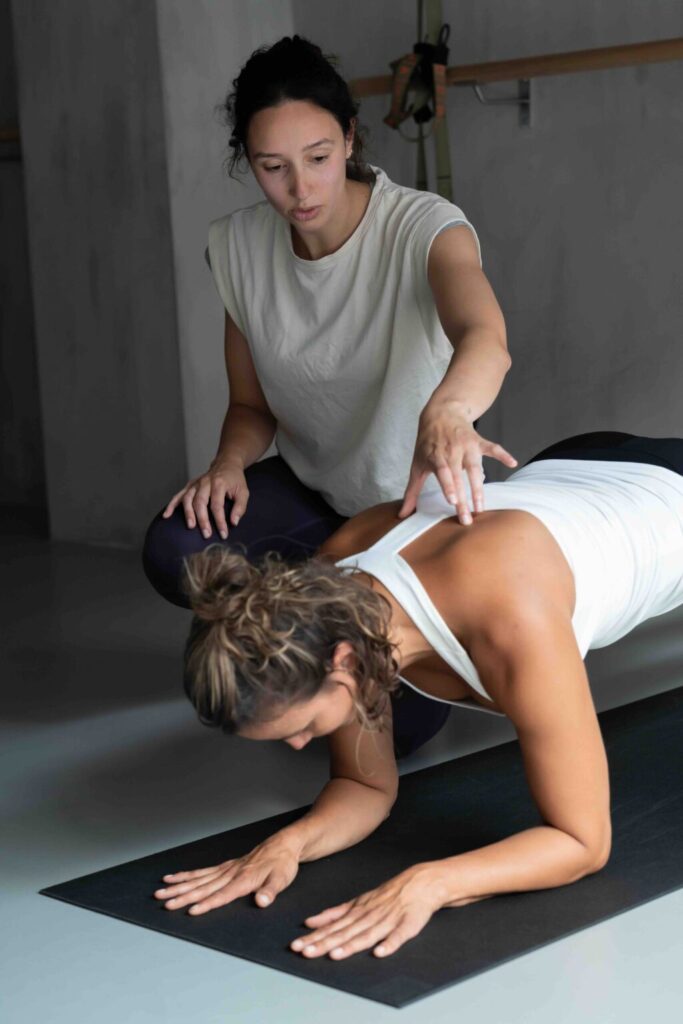
Living and staying fit with rheumatism
Rheumatism can have a significant impact on your daily life, but with the right approach, you can manage the symptoms and improve your quality of life. In this guide, we discuss how to live and move with rheumatism. We offer practical tips on exercise, nutrition, mental health, and lifestyle adjustments. Discover how to reduce your symptoms, strengthen your joints, and enhance your overall well-being.
The influence of rheumatism
The symptoms often manifest in your body, such as morning stiffness in joints and/or muscles, fatigue, pain, and joint damage. Inflammation can cause the joints to swell and become warm, making movement more difficult and leading to increased discomfort in daily activities. Rheumatism can also affect your environment, work opportunities, and emotions.
Keep moving
Movement and strengthening your body have a positive effect on the progression of rheumatism. By moving your affected joints, you strengthen the muscles around them, which reduces deterioration and pain. Choose exercises that train your muscles without putting too much strain on your joints. Exercising in a warm cabin can be beneficial as your legs do not have to bear your body weight. Staying active in work and society is important for your quality of life. Rheumatism can be unpredictable, so you need to learn to cope with both good and bad days. Acceptance is essential.
Continuing to move is crucial for keeping your muscles and joints strong and flexible. This can help alleviate symptoms and slow disease progression. Movement increases your energy levels and can reduce fatigue. Consult a coach for exercise advice. Heat can reduce joint stiffness and improve circulation, making movement easier.
Nutrition and lifestyle with rheumatism
A healthy lifestyle and maintaining a healthy weight are crucial. Losing weight through healthy eating and sufficient exercise can offer many benefits. Focus on a balanced diet rich in proteins, vitamins, and calcium. Avoid foods like fatty meats, dairy products, sugar, coffee, and alcohol. Opt for plant-based alternatives and fatty fish rich in omega-3 fatty acids at least twice a week.
Adequate sleep is essential for recovery. Ensure you have a good mattress and pillow. Stay employed for as long as possible and discuss any necessary adjustments with your employer.
A varied diet is essential. Eat enough proteins, vitamins, calcium, vegetables, and fruits. Avoid foods that can promote inflammation, such as fatty meats and dairy. Omega-3 fatty acids from fatty fish can help reduce inflammation. Avoid alcohol and ensure sufficient water intake. Consider dietary supplements in consultation with a doctor or dietitian.
Mental health and pain
Rheumatism can cause stress and strong emotions. Adjustments and tools can help. Discuss any misunderstandings in your environment and be aware of the effects of a healthy lifestyle. Behavioral change takes time and motivation. Consider coaching for assistance in making changes.
If you experience pain after exercising, it may be wise to reduce your activity in warm conditions. Consult a coach for a tailored program. Flexibility training, such as yoga, can improve the mobility of your joints. If you experience significant pain or limitations, it may be advisable to start with a program like rheumatism in the hot cabin and gradually increase the intensity.
Specific considerations
During inflammatory phases: avoid heavy training and lower the heat in the cabin. Rest during severe inflammation. Be aware of potential pain during and after training. Always consult a coach if the pain lasts longer than two hours post-exercise.
Vitamins and supplements
Vitamins A, B, and D are important for people with rheumatism. In cases of osteoporosis, additional calcium and vitamin D may be needed. Folate is important when using methotrexate. Ensure sufficient intake of manganese and zinc through diet.
Rheumatism requires a holistic approach that focuses on movement, nutrition, mental health, and adjustments in your daily routine. Consult one of our physiotherapists for personalized advice and support.
